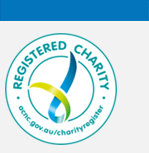Author Credentials
Rebecca J Law, BHSc, MSc (cand),a Dawn Wong Lit Wan, PhD,a Sonja Cleary, PhD,a Wanda Stelmach, MBBS, FRACS,b Krinal Mori, MBBS, FRACS,b and Zhen Zheng, PhDa, *
aSchool of Health and Biomedical Sciences, RMIT University, PO Box 71, Bundoora, Victoria, 3083, Australia
bDepartment of Surgery, Northern Hospital, 185 Cooper St, Epping VIC 3076
Abstract
Background
Patient engagement is a patient’s capacity and willingness to participate and collaborate in their own health care. This scoping review aimed to identify tools used to measure engagement among surgical patients, the levels of engagement and the association between engagement and surgical outcomes. We hypothesise that highly engaged patients are more likely to achieve better surgical outcomes.
Review methods
MEDLINE/PubMed, CINAHL, SCOPUS and Embase were searched for studies that assessed adult perioperative patients for engagement. Analysis from charting the data identified the measurement tools, levels of capacity to engage and relationships between engagement and surgical outcomes.
Results
Twelve studies were selected out of 3975 identified; three valid and reliable tools to measure surgical patient engagement – Patient activation measure (PAM®), Patient health engagement scale (PHE-s) and Hopkins rehabilitation engagement rating scale (HRERS) – were identified, as well as levels of engagement. The capacity to engage was categorised into two, three or four levels. High levels of engagement were associated with enhanced patient satisfaction, better adherence to physical therapy, and decreased pain and disability.
Conclusion
There are valid and reliable tools to measure the capacity of surgical patients to engage in their post-operative recovery; PAM® is the most frequently used tool. Patients with higher engagement are more likely to report better physical health and greater satisfaction with their surgery. Using these tools could assist health care providers in the early identification of patients at risk of poor recovery and provide tailored support.
Recommended Citation
Law, Rebecca; Wan, Dawn Wong Lit; Cleary, Sonja; Stelmach, Wanda; Mori, Krinal; and Zheng, Zhen
(2022)
"Measuring surgical patient engagement: A scoping review,"
Journal of Perioperative Nursing: Vol. 35
:
Iss.
3
, Article 6.
Available at: https://doi.org/10.26550/2209-1092.1197
Creative Commons License

This work is licensed under a Creative Commons Attribution 4.0 License.
Included in
Medical Education Commons, Perioperative, Operating Room and Surgical Nursing Commons, Surgery Commons, Surgical Procedures, Operative Commons


